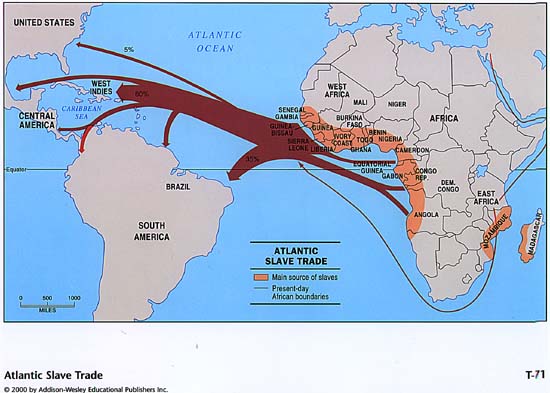RST 280 Marshall
University Fall
2001
Religions of the Caribbean

Be not ashamed to learn truth from any source.
(Ibn Gabirol, ca. 1050)
Mentor:
Dr. Alan Altany (curriculum vitae)
Harris Hall 411 Phone: 304.696.2702
FAX: 304.696.2703
Email: altany@marshall.eduWeb
Site: http://webpages.marshall.edu/~altany/
Departmental Web Site:
http://www.marshall.edu/rst/
Electronic Discussion
Lists:: rst280-0201-list@marshall.edu
| Discussion
List Archive
RST 305,
Tuesdays/Thursdays 12:30 - 1:45, Harris Hall 445
Office hours:
MW 10-11, 12-2; T/Thr 11-12:30; F 10-11
Office Email:
Student email will be responded to within 24 hours of reception
Text/Resources: History
of Religions in the Caribbean, Bisnauth
Sacred Possessions, Olmos, ed.
The Bridge of Beyond, Schwarz-Bart
Santeria, Murphy
World-Wide Web Sites
Religious
Studies is an academic discipline in which the phenomenon
of religion in human experience is studied
in a nonsectarian, unbiased
manner using various kinds of historical-critical, analytical, comparative,
phenomenological,
interdisciplinary methodologies.
Discussion should be conducted with honesty, enthusiasm, kindness, critical
thought
and respect for the worldviews
and beliefs of others. This course is not only for learning, but is itself
to be a model for
how to learn, why to learn,
and to learn to love to learn.
The following course explanation, in its totality, is a syllabus that
is dynamic and flexible
according to the needs of the learners and of the learning process. It
is not presented
as complete at the beginning of the study, but as an initial trajectory
for the study. More
specific guidance and resources will be available as needed along the way.
You, the learner,
have a key voice in the directions our study of world religions take so
that our work will be
significant for you and for the class as a whole within a learner/student-centered
context.
Course
Description
Course
Objectives
Computing
in this Course
Writing
Across the Curriculum
Attendance
Policy
Drop
Policy
Course
Evaluation
Semester
Schedule
Course Description
The story of religions in
the Caribbean is one of intercultural and interreligious conflict and convergence
and
the Caribbean matrix of
cultures and religions, viewed both historically and comparatively, has
implications
today for the Caribbean
and beyond, including the United States. This course is a study of
the forced meeting
of cultures and their religions,
of indigenous peoples of the Caribbean (such as the Arawak and Carib peoples
who had migrated earlier
from South America), of tradition African tribal religions that arrived
in the region with
the slaves from West Africa,
and of European Christianity on the mainly Spanish and French colonizers
of the
"New World."
This convergence of religions
and peoples will be analyzed in the context of domination and exploitation,
slavery,
conversion, assimiliation,
perserving of traditions and survival. The study will focus on Vodun,
Santeria and
Rastafarianism.
Return to Top
Course
Objectives
By the end of this study
it is hoped and expected that each student will be able to formulate a
foundational
understanding of the history
and interrelationships of the religions of the Caribbean by having explored
the following:
-
What is the role of religion
for a people under oppression in maintaining their identity?
-
What happens when one's religion
is outlawed, or is assimilated, or is part of a new religious
syncretism?
-
The story of the traditional
religions of the African slaves entering the Caribbean world and coming
into
contact with the indigenous
religions and with Christianity
-
What role do such religions
as Santeria, Vodun, Rastafarianism, etc. have among Caribbean cultures
today and what role do they
have in the United States?
-
Is dialogue possible among these
religions and between Christianity and these other religions?
-
What does the story of religions
in the Caribbean say about religious beliefs, human violence and
human perseverance and hope,
religious and cultural adaptation, assimilation and syncretism?
This study can help students
in their quest for meaning, understanding, compassion and wisdom.
Return to Top

Computing
in this Course
Each student needs to have
the basic ability to use email that is web-sensitive such as Netscape Messenger
or
Microsoft Outlook and to
be able to find and utilize world-wide-web resources that are available
for the study of
religion and religions through
use of a web browser such as Navigator (4.0 or higher) or Internet Explorer
(4 or
higher). The course
will include sending and receiving email, web site readings and research,
an electronic
discussion list (with web
archive) and electronic publication of student writings, both individual
and collaborative.
The educational use of telecomputing
will facilitate ongoing asynchronous discussion, submission and revision
of
student writings, peer review
of student writings, collaborative group writings and projects, individual
communication
with the professor, or among
students, and publication of an electronic course journal with student
contributions.
Telecomputing
tutorials are available as is guidance on how to engage
in respectful communication on the Internet
(netiquette).
In using web sources, please refer to MLA
Documentation of Electronic Sources.
The purposes of the
using of computer technology in this study are as follows:
-
Participation in the archived,
asynchronous class discussion list (mailserv)
-
Communication with international,
intercultural guests on the class list
-
Individual email contact with
students from other parts of the world
-
Anytime communication of questions,
comments, problems, etc. with the professor/mentor via individual
email
-
Engage in a semester-long discussion
with other learners in the course via the class discussion list
-
Submit individual & collaborative
writings electronically to the class list or professor
-
Investigate relevant World-Wide
Web sites
-
Collaborate with other students
in the course on projects/writings via email
-
Expand opportunities for reflective
participation in the study, beyond classroom time & place
-
Encourage learners/students
to become more central to the learning process and more responsible for
their own, and others',
learning
-
Develop computer skills
-
Allow learning to become more
enjoyable, valuable, enduring, self-directed, active and expansive beyond
just a transfer information
from professor to student
Return to Top
Writing Across the Curriculum
This study is a Writing
Across the Curriculum (WAC), writing-intensive, course where
writing is fully integrated
into all aspects of the
learning and reflection process. In this process one's writing skills
are further developed in
the context of both learning
to write and writing to learn. There are no exams in this course, but there
are in- and
out-of-class writings, a
formal, revised essay, group writings, oral presentations or debates with
written components.
On-line writing
resources are available. All writings are to be completely
the work of the individual or the group
doing the writing, thus
avoiding all plagiarism.
Return to Top
Attendance
Policy
Attendance at every class
is expected and necessary to best benefit the act and art of learning through
the discussion
and writing orientation
of this course on a very complex subject. Anyone not willing to be
responsible for attending all
classes is advised not to
take this course.
Return to Top
Drop Policy
The official withdrawal
policy is observed where the withdrawal ("W") period for an individual
course begins
August 27th and ends October
26th.
Return to Top
Course
Evaluation
Class List Participation, Selected Individal & Collaborative Writings
- 25%
Individual Essay
/ Project #1
- 25%
Self-Directed
Group Writing & Class Presentation Project
- 25%
Individual Integration Essay #2
(revision process)
- 25%
All writings, presentations,
discussion list postings need to be given on time to receive full evaluation.
* Opportunity for voluntary,
collaborative creation of issues of a Course Journal will be given
Semester
Schedule
In a time of drastic change it is the learners who survive;
The "learned" find themselves fully equipped to live in a world that no
longer exists. (Hoffer)
Courses
| Resources
| Altany Home |
RST Department Site
| Return to Top

